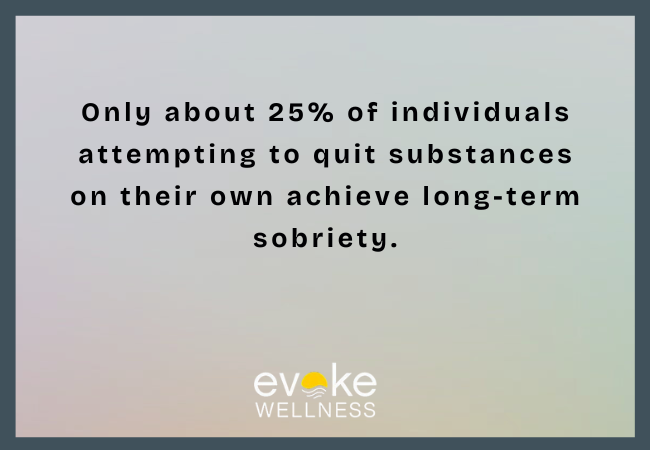Detoxification, commonly referred to as detox, is the process of clearing drugs or alcohol from the body to begin the recovery journey. While some individuals may consider at-home detox to avoid the perceived inconvenience or cost of professional care, this approach comes with significant risks. Without medical supervision, detoxing alone can lead to dangerous withdrawal symptoms, severe health complications, and even life-threatening conditions. Seeking help from an addiction treatment center in Ohio ensures that individuals have access to medical support, therapeutic interventions, and a structured environment to promote long-term recovery.
What is Detox?
Detoxification (or detox) is the first step in addiction recovery, where the body eliminates drugs or alcohol after prolonged use. During this process, individuals experience withdrawal symptoms as the body adjusts to functioning without the substance.
The severity of withdrawal symptoms depends on:
- The substance used (alcohol, opioids, benzodiazepines, etc.)
- The duration and frequency of use
- The person’s age, overall health, and medical history
- Whether they have attempted detox before
Understanding the Risks of At-Home Detox
Many people assume that quitting drugs or alcohol at home is a simple and safe process, but withdrawal symptoms can be unpredictable and, in some cases, deadly. The risks of at-home detox depend on the type of substance used, the duration of use, and the person’s overall health. Some of the most serious complications include:
- Severe withdrawal symptoms: Alcohol, benzodiazepines, and opioids can cause intense withdrawal effects, including seizures, hallucinations, and heart irregularities.
- Dehydration and malnutrition: Individuals who detox at home often experience vomiting, diarrhea, and loss of appetite, leading to dangerous levels of dehydration and malnutrition.
- Mental health crises: Anxiety, depression, and suicidal thoughts are common during withdrawal. Without medical support, individuals are at a heightened risk of self-harm or relapse.
- High risk of relapse: At-home detox does not provide the structure or coping mechanisms necessary to prevent relapse, which can increase the risk of overdose due to reduced tolerance levels.
Is At-Home Detox Safe? Understanding the Risks
At-home detox may seem like an easier and more private way to quit alcohol or drugs, but it comes with serious risks. Without medical supervision, withdrawal symptoms can become dangerous or even fatal.
1. Severe Withdrawal Symptoms Can Be Life-Threatening
Certain substances cause severe withdrawal effects that require medical supervision.
- Alcohol Withdrawal: Can cause seizures, hallucinations, and delirium tremens (DTs), which can be fatal.
- Opioid Withdrawal: Includes extreme nausea, dehydration, and heart issues.
- Benzodiazepine Withdrawal: Can lead to panic attacks, seizures, and coma if stopped suddenly.
In a professional detox setting, doctors monitor withdrawal symptoms and provide medications to prevent complications. At home, there is no way to control or manage life-threatening symptoms.
2. High Risk of Relapse
Withdrawal symptoms can be extremely uncomfortable, leading many people to start using substances again just to feel better.
Common relapse triggers during at-home detox include:
- Uncontrollable cravings
- Severe anxiety and depression
- Pain and discomfort
- Lack of medical support or coping tools
Professional detox programs reduce relapse risk by offering medications, therapy, and emotional support to help individuals stay committed to recovery.
3. Lack of Medical Supervision & Emergency Care
In a detox facility, medical staff can quickly intervene if symptoms become severe.
At home, individuals face severe risks, including:
- Seizures or heart complications with no immediate help
- Severe dehydration from vomiting and diarrhea
- Unmanaged psychological distress (anxiety, panic, suicidal thoughts)
Having medical professionals available 24/7 ensures that withdrawal symptoms are treated safely and effectively.
4. Mental Health Complications
Many individuals with addiction also struggle with co-occurring mental health disorders, such as:
- Depression
- Anxiety
- PTSD
- Bipolar disorder
Detoxing without medical supervision can worsen mental health symptoms, increasing the risk of self-harm or suicidal thoughts.
In professional detox programs, therapists and counselors provide:
- Emotional support to prevent distress
- Medication management for anxiety or depression
- Therapeutic interventions to help individuals cope with withdrawal
Benefits of Professional Detox Programs
A mental health treatment in Ohio offers medically supervised detox programs designed to provide safety, comfort, and a strong foundation for recovery. Unlike at-home detox, professional detox centers offer:
-
24/7 Medical Supervision
Withdrawal symptoms can be unpredictable, but in a medical detox setting, trained professionals monitor individuals around the clock to address any complications. This reduces the risk of severe health issues and ensures that medications can be administered to alleviate discomfort.
-
Medication-Assisted Treatment (MAT)
Certain substances, such as opioids and alcohol, require medication-assisted treatment to safely manage withdrawal symptoms. MAT helps reduce cravings, prevent relapse, and improve overall recovery outcomes.
-
Emotional and Psychological Support
Detox is not just a physical process; it also involves intense psychological challenges. Professional detox centers offer counseling, therapy, and peer support to address the emotional aspects of addiction and prepare individuals for the next phase of recovery.
-
A Safe and Supportive Environment
A controlled setting eliminates access to drugs or alcohol, reducing the likelihood of relapse during the early stages of recovery. Detox centers provide a comfortable and structured environment where individuals can focus entirely on their healing journey.
How Professional Detox Sets the Stage for Long-Term Recovery
Completing detox is only the first step in overcoming addiction. Without proper follow-up care, many individuals struggle to maintain sobriety. A mental health treatment in Ohio integrates detox with therapy, behavioral interventions, and aftercare planning to promote long-term success.
- Individualized treatment plans: Each person’s addiction history and health condition are different, requiring personalized care tailored to their needs.
- Therapeutic interventions: Cognitive-behavioral therapy (CBT), group therapy, and holistic therapies play a crucial role in recovery.
- Aftercare support: Transitioning from detox to inpatient or outpatient rehab ensures continued progress and prevents relapse.
Importance of a Holistic Approach to Detox
Professional detox programs don’t just focus on eliminating substances from the body; they incorporate a holistic approach to healing. This means addressing physical, mental, and emotional health through:
- Nutritional support: Proper nutrition helps restore the body’s balance and speeds up recovery.
- Exercise and wellness activities: Physical activity, yoga, and meditation contribute to stress reduction and emotional stability.
- Family involvement: Support from loved ones plays a vital role in the recovery process, helping individuals stay committed to their goals.
Choosing the Right Detox Program
Not all detox programs are the same, and choosing the right one can make a significant difference in recovery success. When looking for a detox center, consider:
- Accreditation and licensing: Ensure the facility is accredited and staffed by qualified professionals.
- Treatment approach: Look for a program that aligns with your specific needs, whether it’s medication-assisted detox, holistic detox, or dual diagnosis treatment.
- Continuum of care: A strong detox program should provide seamless transitions into rehab or aftercare programs for long-term recovery support.
Take the First Step Toward a Safer Detox
Detoxing from drugs or alcohol is physically and emotionally challenging, but choosing a professional detox program can save lives. If you or a loved one is struggling with addiction, attempting detox at home can be dangerous. Seeking care at an addiction treatment center in Ohio provides the medical attention and support needed for a successful recovery. Don’t face this journey alone—call us today at 866.430.9267 or Reach Out Us to begin a safe and effective detox process.
Frequently Asked Questions
What is the difference between at-home detox and professional detox?
At-home detox lacks medical supervision and can be dangerous due to severe withdrawal symptoms. Professional detox provides medical monitoring, medication support, and a structured environment to ensure safety and comfort.
How long does the detox process take?
The length of detox varies depending on the substance used, the duration of addiction, and the individual’s health. On average, detox can last anywhere from a few days to two weeks.
Can I detox at home safely if I taper off substances?
Even tapering off substances at home can be risky, especially for alcohol, benzodiazepines, and opioids. Professional medical supervision ensures that the process is managed safely and effectively.
What happens after detox?
After detox, individuals are encouraged to continue treatment in a rehab program that offers therapy, counseling, and relapse prevention strategies to support long-term sobriety.
Does insurance cover detox treatment?
Many insurance providers cover detox treatment as part of addiction recovery services. It’s best to check with your insurance provider or contact a detox center to verify coverage options.



